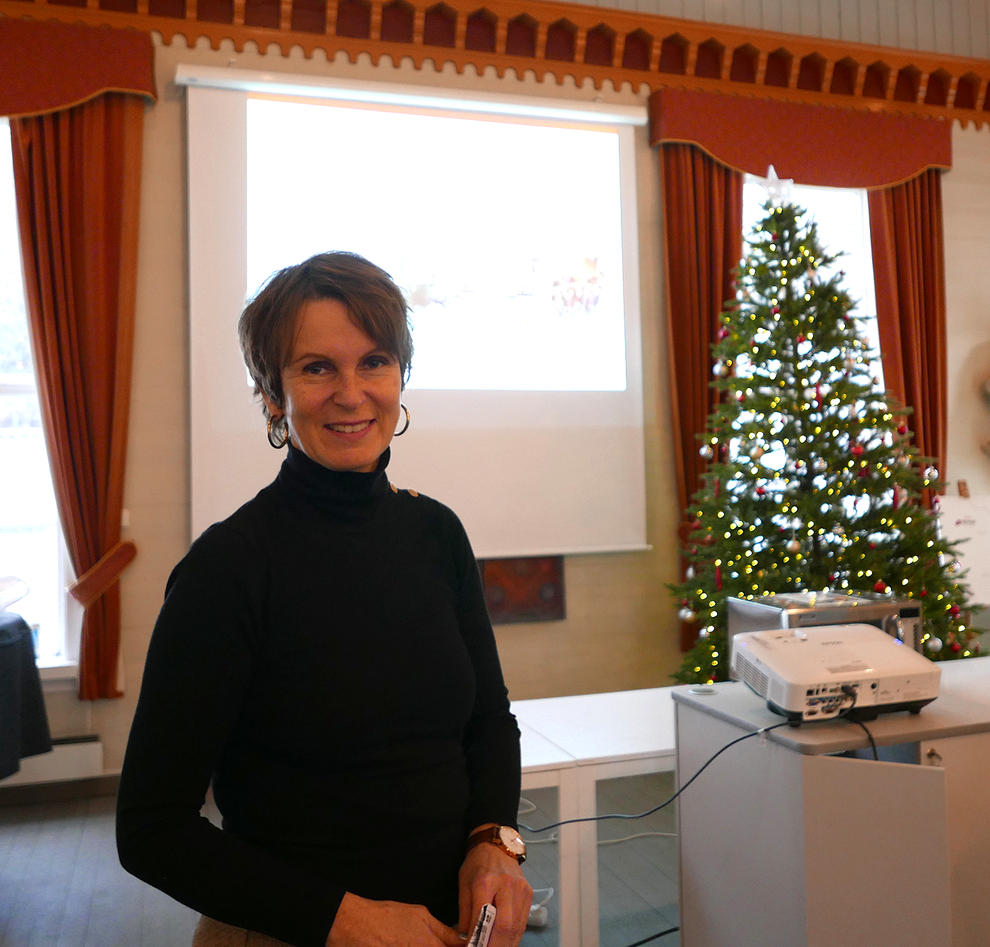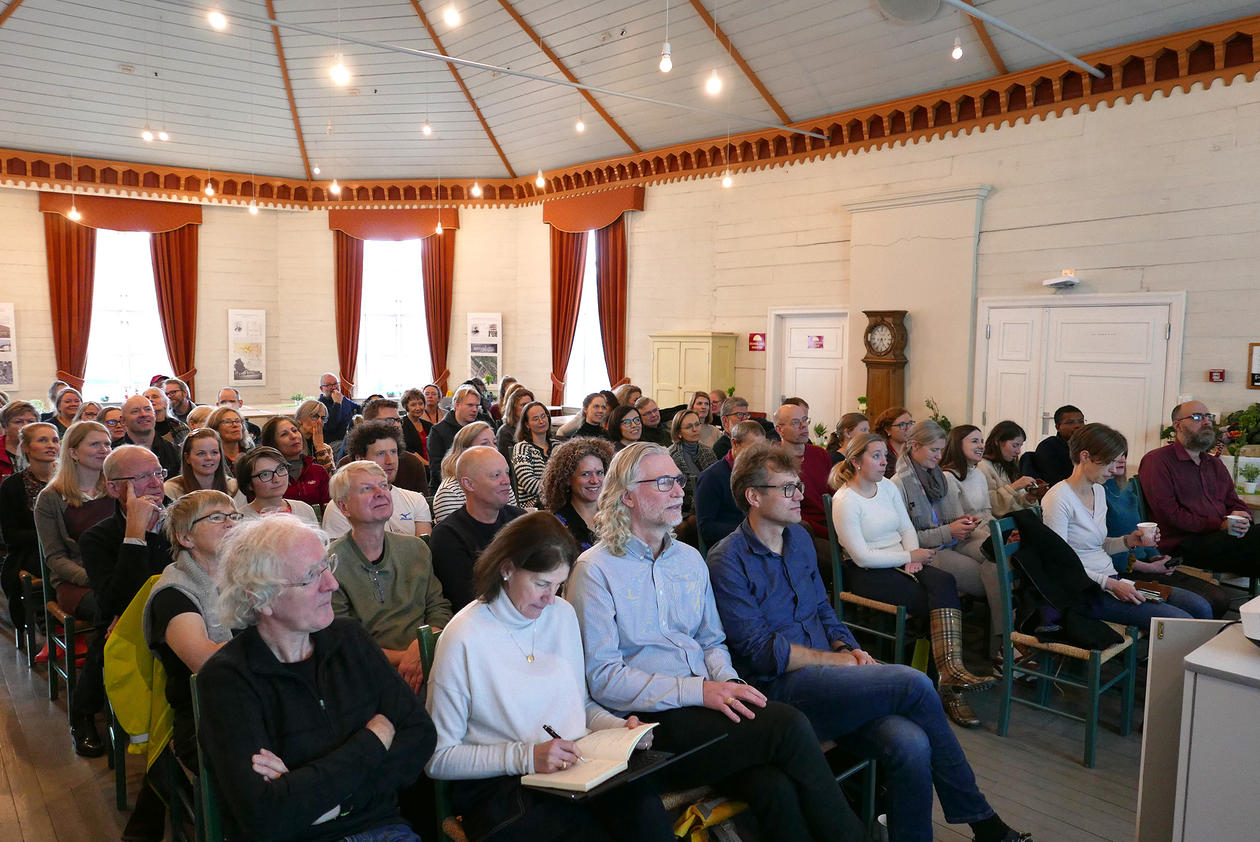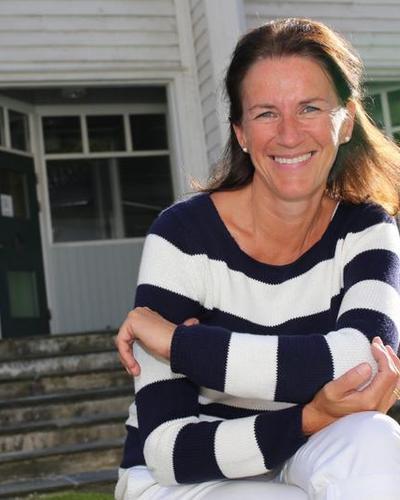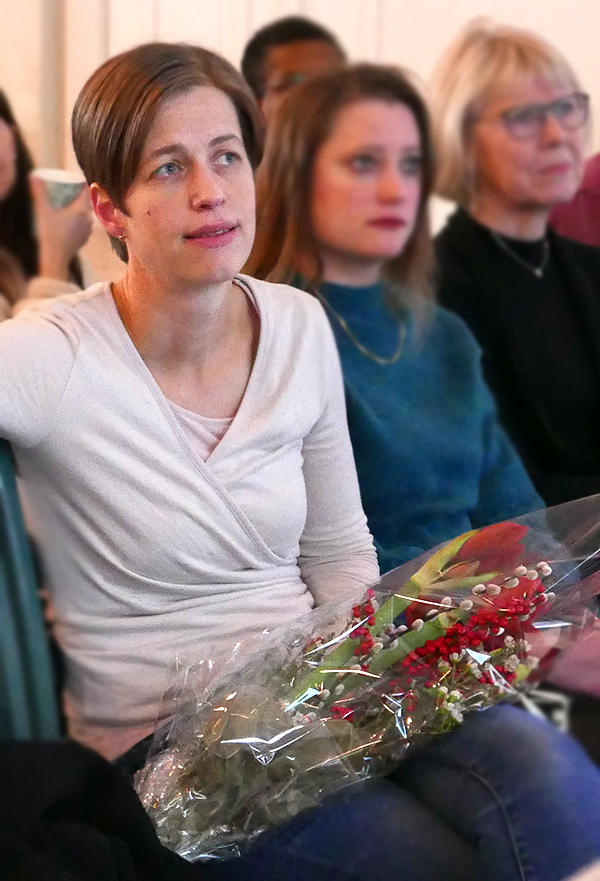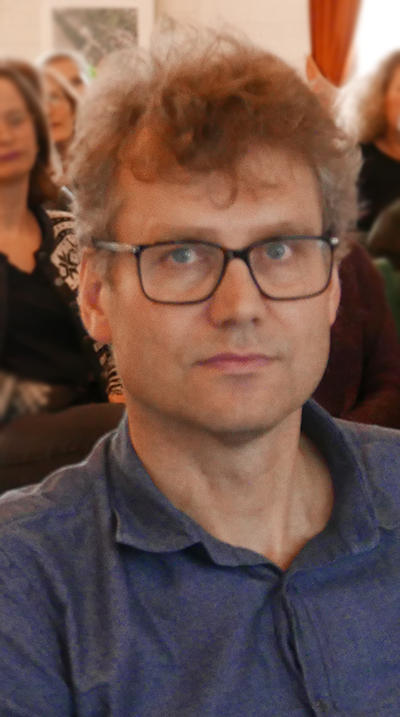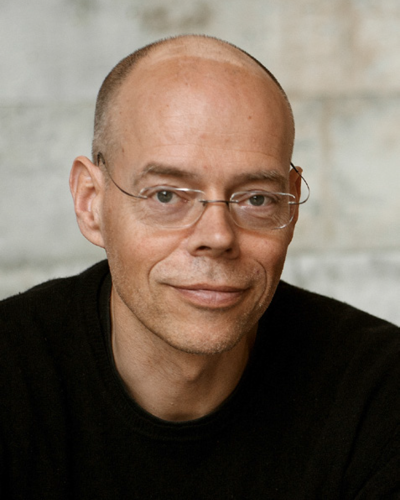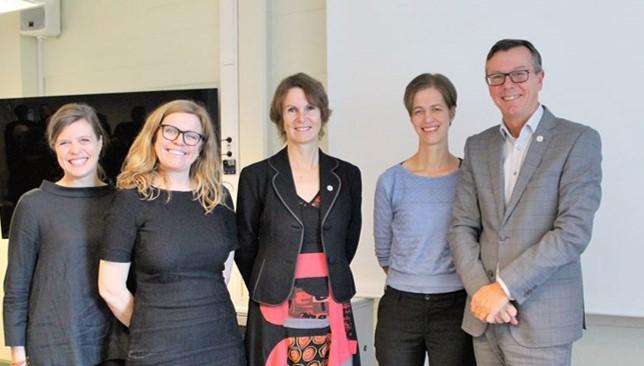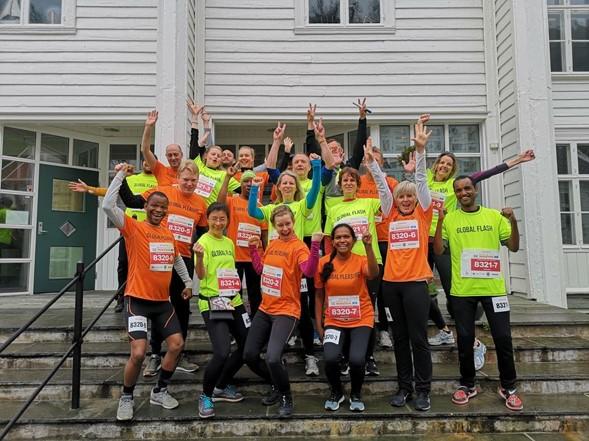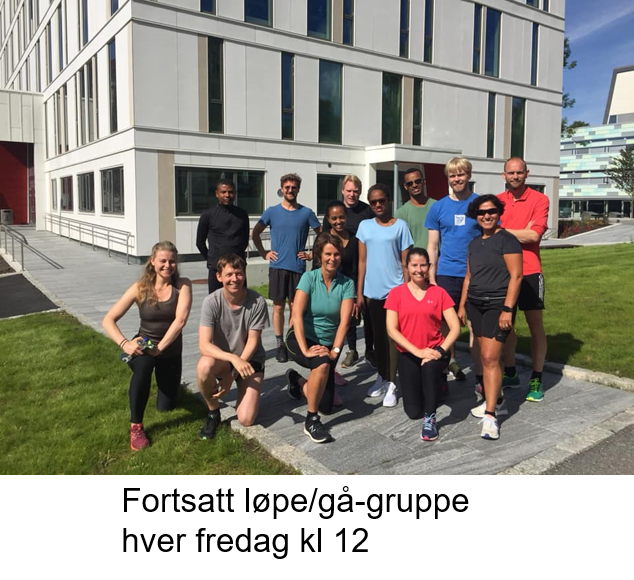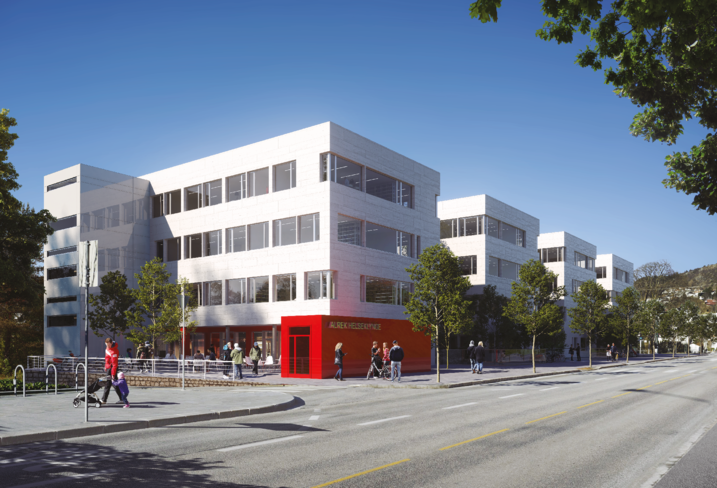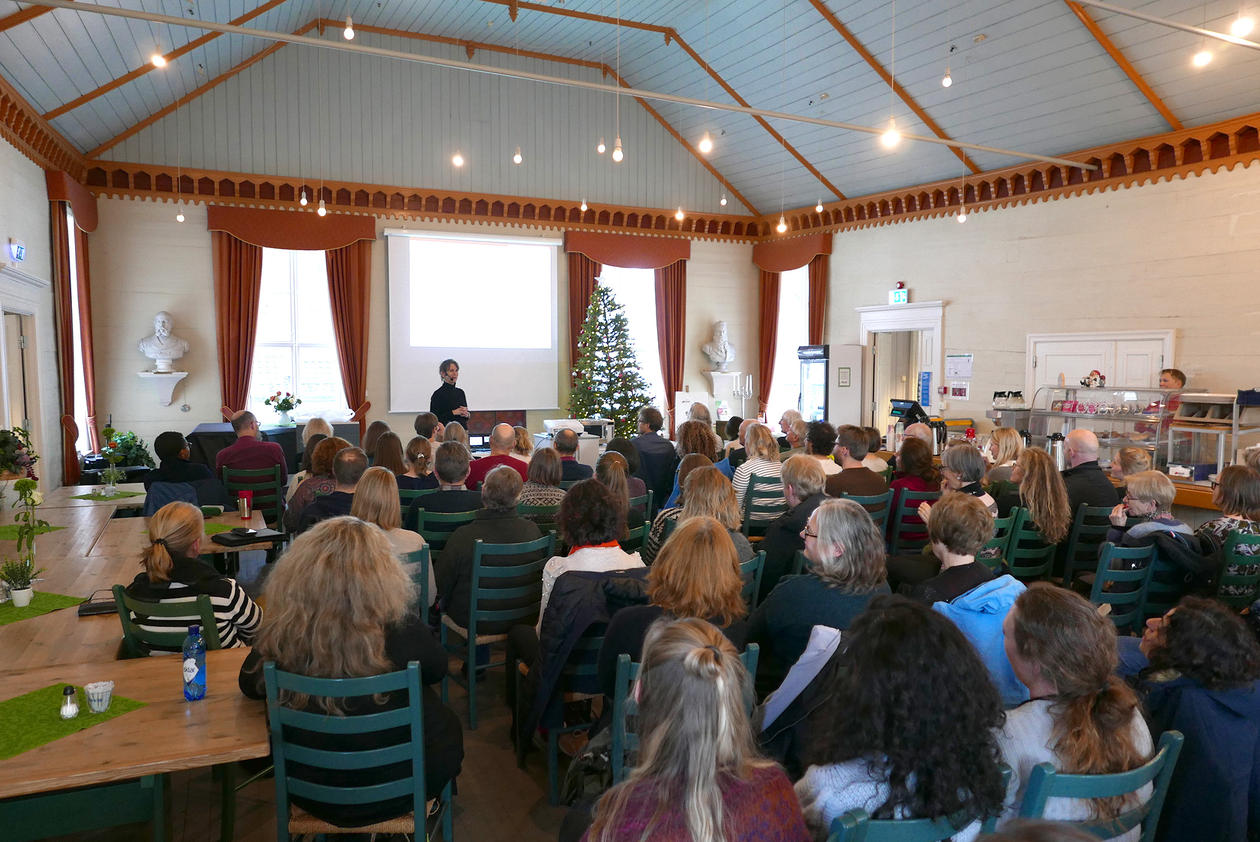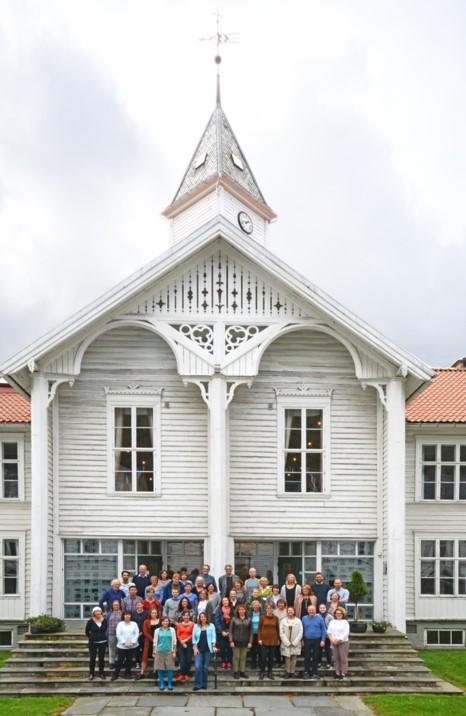IGS General Assembly 8 Jan. 2020
Summarising 2019 and looking ahead to 2020 at IGS

Main content
Innovation in all we do
Guri Rørtveit is pleased to have been re-appointed in the exciting, fantastic job as Head of IGS for another 4 years. However, she encourages IGS researchers to begin thinking now about the next Department Head, 4 years down the road.
Rørtveit spoke of the importance of thinking in new ways. Innovation, for example, is not only about commercialisation, it is about thinking in new ways – being innovation in research. There will be a new leader position at IGS – Innovation Leader. Bettina Husebø will be IGS’ first Innovation Leader. Rørtveit highlighted Husebø’s efforts to combine a large group of multi-disciplinary researchers as well as small and large commercial interests in an application for one of the Research Council of Norway’s Centres for Research-based Innovation (SFI). Learn more.

Husebø says that global challenges need innovation.
“Innovation means creating value in new ways”
Research is different things to different people
Ingvild Fossgard Sandøy has been the Deputy Head of Department and the Head of Research for 2 years. January 2020 she moved to a new Section at IGS where she will be Professor of Global Health at the Centre for International Health. Rørtveit expressed her deeply felt appreciation for Sandøy’s hard work and support. She praised Sandøy’s competence, as well as her ability to follow-up, take initiatives and give feedback.
Bjarne Robberstad will take over as Research Leader at IGS. While Robberstad says that research is different things to different people, he underlines that research at IGS should continue to support IGS’ Vision and Mission: better health, better society.

He spoke of the Department continuing to actively support all researchers, from the up and coming “Askeladden” to the older, wiser, experienced researchers –
- Support research leaders
- Support young ambitious new researchers
- Application-writing seminars
- Increase collegiality between all
- Revision of research strategy.
Among other things, Rørtveit says IGS’ revised research strategy will highlight continued development of new Master courses and TVEPS. (UiB Rector, Dag Rune Olsen, and Vice-Rector for Global Relations, Anneline Eriksen, met with IGS’ strategic research and education leaders Wednesday 2 October.)
In terms of large research applications, Rørtveit says that one SFI has been sent in, and 2 SFF applications are being worked on. She would like IGS to have continued support for application writing processes, to further increase competency there. She would also like to see more emphasis placed on project leader competencies.
Universities are creativity arenas
Edvin Schei, IGS’ Leader of Education highlighted that an important theme within Higher Education in 2020 will be seeing universities as creativity arenas. He says that IGS is committed to continuing to invest in increasing teaching competencies. Education Strategy IGS 2019-2023 (Norwegian only) Schei pointed to some key concepts in IGS’ Education Strategy that will be important in the coming years including: learning theories, student-centred pedagogy, smart technologies, useful evaluation tools, and role reflections (as a teacher, as a role model).
Schei reminded IGS faculty that MED will be offering a rewards to excellent teachers. More info (in Norwegian). He also spoke about the new Pedagogy Portfolios (more info in Norwegian). There will be 2 workshops in how to create one: 9 March and 17 April.
Schei highlighted 2 other important dates in Spring Semester 2020. IGS’ Education Seminar will be held 22 April. Nominations for IGS’ teaching prize (worth 10 000 NOK) close 1 March.

TVEPS has grown significantly in 2019
UiB and HVL (Høgskolen på Vestlandet) have collaborated to develop TVEPS (Centre for Interprofessional Work-Place Learning). The Centre meets the Ministry of Education and Research’s requirement for obligatory professional and collaborative training in health and social welfare. From autumn 2020, around 900 students from 17 different disciplines will have an interdisciplinary training period with TVEPS.
Alrek Health Cluster
It is less than 8 months until most of IGS moves to the new Alrek Health Cluster (Norwegian only) IGS personnel will move into this new arena for collaborations in research and education 10 Aug, 2020.
Alrek brings opportunities and possibilities. There will be meeting places that will facilitate IGS’ strong social bonds. Rørtveit says that much is happening already around Alrek. Many people at IGS are involved. Follow the webpages and newsletter to stay updated.
“The train is leaving the station – don’t be left on the platform!”
IGS numbers 2019
Publications
While numbers are about the same or slightly lower, Rørtveit stressed that quality is more important than quantity, and spoke of trying to increase the number of level 2 publications. Top publications include a CISMAC article in The Lancet, a book on Migrant Health (Esperanza Diaz), and a book on elderly medicine (Bettina Husebø).
The numbers of graduating PhDs and Masters remain about the same, just slightly lower (23 PhDs, 48 Masters).
Prizes
IGS faculty were awarded numerous prizes in 2019. Rørtveit underlined the importance of actively participating in the nomination process.
- PhD Candidate of the Year (MED): Kristine Onarheim (ETØK)
- High Quality Teaching Prize (MED): 11th semester medical studies - Øystein Hetlevik (FAM)
- Disseminiation Prize 2019 (MED): Edvin Schei (FAM)
- Teaching Prize (Helse Vest): Aslak Aslaksen (SAMLET)
- The Nordic Friedrichs Prize : Guri Rørtveit (FAM)
- Students’ Choice Prize: Anders Bærheim (FAM)
- Marie Spångberg Prize: Hilde Engjom (EPISTAT)
- Rune Samdal (FEST) was awarded several prizes
Applications
IGS researchers were active in application-writing. Rørtveit says that the process of application writing is important. It can help researchers to focus their thoughts, build networks and partnerships, learn to think differently – innovatively! She also underlines the importance of successful applicants encouraging others and sharing their experiences.
Successful application highlights include:
- Rolv Skjærven being granted an ERC advanced grant
- Ole Frithjof Norheim being granted funding for a new research centre, BCEPS
Other successful applicants include: Ane Johannesen, Trond Riise, Tone Bjørge, Inger Haukenes, Sabine Ruths, Bjørn Bjorvatn, Anne Kjersti Daltveit and Bettina Husebø.

Wrapping up: looking back and looking forwards
Looking back 2016-2019
Rørtveit says that the process of re-organisation at IGS has helped IGS grow. There is definitely more interdisciplinary collaboration between researchers and research groups, she says. Progress was made in all 6 goals from her previous 4-year mandate:
- Strengthen internal collaboration within IGS
- Strengthen IGS’ activity within Global Health
- Increase collaborations with local research millieux
- Strengthen teaching at IGS
- Strengthen collaboration with Primary Health Services
Looking forward 2020-2023
- IGS’ plans and strategy documents will be revised – the possibilities and goals support team-building
- Restructuring and leader development – increasing awareness of organisational structures and leadership in academia
- Multi-disciplinary collaborations give fantastic opportunities
- But - balancing our sense of identity as a department with the collaborative opportunities in Alrek
